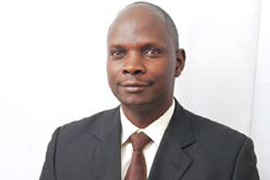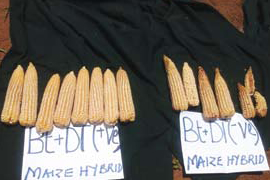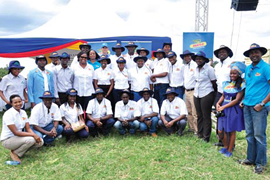Thomas Kipkorir: Visionary and Inspiring
Briefly discuss Thomas Kipkorir (Background and Professional life to your current position)

Thomas is the Country Manager, Crop protection and Public Health business at BASF. Before joining Basf East Africa Ltd, Thomas worked for Amiran Kenya Ltd (2012-2013), as the Cereal Manager in-charge of all large and medium scale farms in Timau, Narok, Nanyuki, Eldoret, Nakuru, Naivasha and all Adventure groups of farms in the country.
Before joining Amiran, worked for Hygrotech East Africa Ltd (2003 – 2011) as the Regional Manager in charge of Western Kenya region in charge of Cereals, Corn, and Coffee, Sugar cane, Ornamentals and vegetables business.
Thomas’s ambition is to be part of a proactive, dynamic, diligent team that defines plans, develops, and provides efficient and effective management strategies to business enterprises. His personal skill includes proven managerial ability, excellent numeric and analytical skills, good organizational skills, excellent interpersonal and leadership skills, ability to manage cross cultural teams. He also has good writing skills, ability to draft projects/research proposals. Thomas has a Master of Science in Agricultural and Rural Development from KeMU, Bachelor of Science in Agriculture (Production Option) and Diploma in Management & Administration from Cambridge, Diploma in Veterinary Science Assistant from Thomson College.

